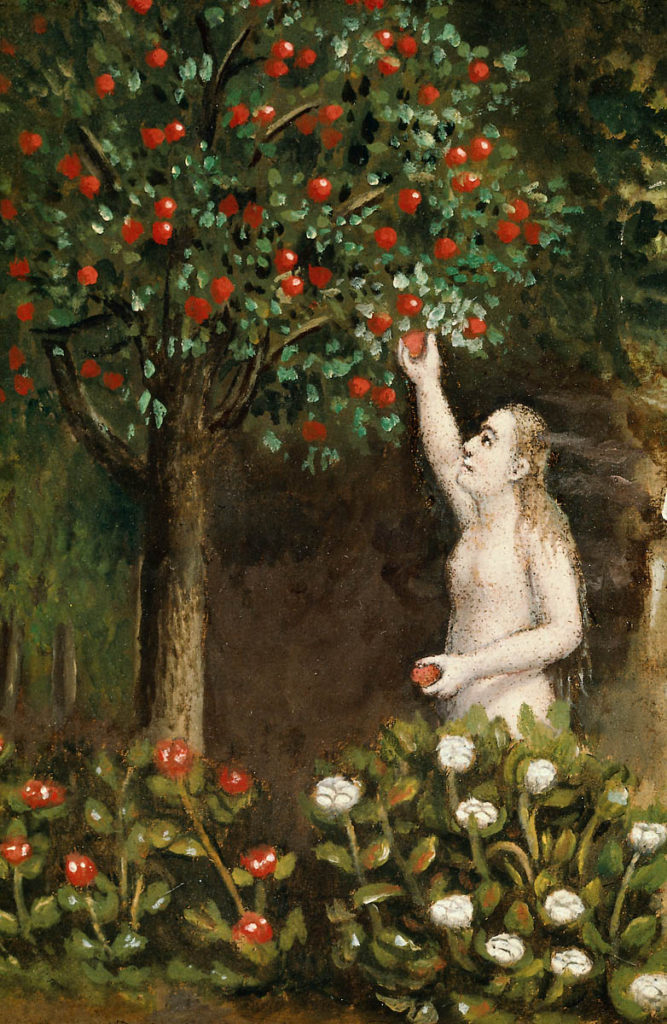Thursday
Ah, the wonders of twitter. Thanks to one Arnie Perlstein, who declares himself a Jane Austen fan, I now see a similarity between Sen. Elizabeth Warren and John Milton’s Eve. It’s a comparison worth exploring.
Some explanation is required. On Tuesday, Sen. Warren declared that it was four years ago to the day that she had been silenced (Republicans today would say canceled) by then-Senate Majority Leader Mitch McConnell. During the Senate hearings of Jeffrey Beauregard Sessions for Trump’s attorney general, Warren read a Coretta Scott King observation, appearing in a 1980s letter, accusing Sessions of having “used the awesome power of his office to chill the free exercise of the vote by black citizens.” A perturbed McConnell accused Warren of badmouthing a fellow senator, and, as Warren reports in her recent tweet, “every Republican in the chamber that night voted to shut me up.”
When later asked why, McConnell memorably explained,
Senator Warren was giving a lengthy speech. She had appeared to violate the rule. She was warned. She was given an explanation. Nevertheless, she persisted.
From that point out, Warren wore “Nevertheless, she persisted” as a badge of honor. Tee-shirts appeared carrying the phrase, which in many ways sums her up perfectly.
For instance, she has persisted in pushing her long-proposed tax on upper incomes (2% on wealth between $50 million and $1 billion, 3% on wealth above $1 billion), which now that Democrats control the Senate will finally come up for a vote.
For that matter, she was absolutely right about Sessions, who backed tearing children away from the asylum-seeking parents and who weakened restrictions on police brutality and voter suppression. Only because he refused to become Trump’s personal attorney—he at least had enough integrity for that—was he fired and his career ended.
Now for the Eve comparison, which Perlstein tweeted in response to the “persisted” anniversary:
Sen. Warren, Re your 2017 persistence despite sexist/racist silencing, you have a great female forbear, who also refused to submit to male rule, but instead chose female knowledge & empowerment: “So spake the patriarch of mankind; BUT EVE PERSISTED…” — Paradise Lost, Bk 9
It must be acknowledged that Perlstein’s version of Eve is not Milton’s. The passage comes at the end of a prolonged marital dispute where Eve wants to go off by herself and is offended that Adam lacks confidence that she could hold her own against Satan. In other words, Adam sees female persisting as nagging and succumbs for the sake of domestic tranquility :
Go; for thy stay, not free, absents thee more;
Go in thy native innocence, rely
On what thou hast of virtue, summon all,
For God towards thee hath done his part, do thine.
So spake the Patriarch of Mankind…
Eve, having gotten her way, then reclaims the role of good, submissive wife, emphasizing that Adam is the one granting permission:
but Eve
Persisted, yet submiss, though last, repli’d.
With thy permission then, and thus forewarned…
Later, after the fall, she will throw this permission in Adam’s face, saying, essentially, that he should have been firmer with her. He, astonished, lashes back, although one senses that Milton agrees with Eve: he should have reminded Eve who wears the pants in the family. (Well, they’re naked but you get the point.) Here’s their interchange:
Eve: Being as I am, why didst not thou the head
Command me absolutely not to go,
Going into such danger as thou saidst?
Too facile then thou didst not much gainsay,
Nay, didst permit, approve, and fair dismiss.
Hadst thou bin firm and fixt in thy dissent,
Neither had I transgressed, nor thou with me.
Adam: It seems, in thy restraint: what could I more?
I warned thee, I admonished thee, foretold
The danger, and the lurking enemy
That lay in wait; beyond this had bin force,
And force upon free will hath here no place.
Milton observes that no one’s going to win this argument:
Thus they in mutual accusation spent
The fruitless hours, but neither self-condemning,
And of their vain contest appeared no end.
I’ve strayed from from Warren and McConnell so let me just say this. McConnell would like Warren to be submissive and deferential—we’ve just seen with the rejected Office of Management and Budget nominee Neera Tanden what happens when a woman tweets like a man—and Warren makes not even the slightest nod in that direction. Her persisting, in other words, is not like Eve’s in that she assumes that she has every right to go her own way. In fact, her refusal to play the subservience game is what irritated McConnell in the first place. When a male Democratic senator read the same Coretta Scott King letter later in the hearings, McConnell didn’t say a word.
So, in the end, Warren is no Eve and the contrasts are more illuminating than the comparisons. Eve imagines eating the apple will put her on the same playing field as Adam—“for inferior who is free?”—whereas Warren already assumes she’s on the same plane as men. No “he for God only, she for God in him” for her.
Milton was advanced for his age in that he at least gave Eve a voice and a fleshed-out character. It’s just regrettable that McConnell still has remnants of the author’s 17th century views.


